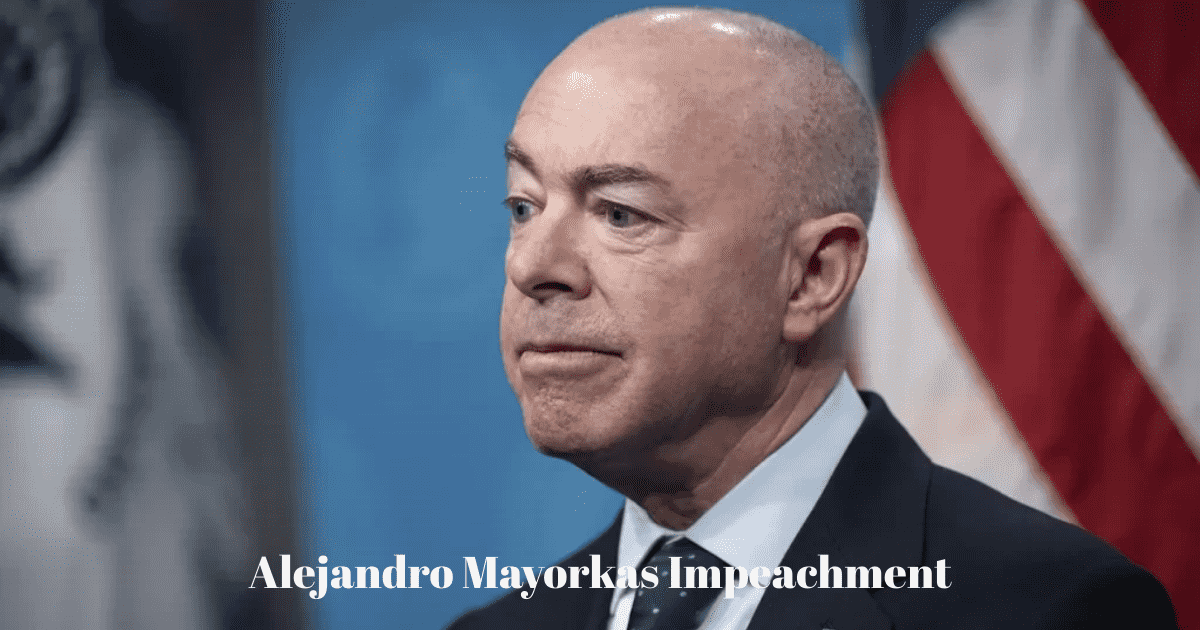Alejandro Mayorkas Impeachment Drama Unfolds: Mayorkas Makes History
In a groundbreaking and unprecedented move, House Republicans succeeded in impeaching Alejandro N. Mayorkas, the homeland security secretary. The 214-213 vote marked a historic event, making Mayorkas the first sitting cabinet member in U.S. history to face impeachment charges. The charges include willfully refusing to enforce border laws and breaching the public trust, creating a seismic shift in the political landscape.
This daring move by Republicans serves as a partisan indictment of President Biden’s immigration policies, with a focus on using the surge in migration across the U.S.-Mexico border as a potent political weapon. The G.O.P.’s strategy aims to leverage the discontent over immigration policies to gain an upper hand in the upcoming elections. President Biden responded to the impeachment with strong condemnation, denouncing it as an act of unconstitutional partisanship designed to target an honorable public servant for political gain.
The Journey to Impeachment: Politics, Policies, and Reservations
The journey to impeaching Mayorkas faced significant hurdles, with the initial attempt resulting in failure. In a redo of their first unsuccessful bid, Republicans overcame solid Democratic opposition, securing a narrow victory in the House. The impeachment resolution included two articles: “willful and systemic refusal to comply with the law” and “breach of public trust.” The charges reflect conservative discontent with Mayorkas and the Biden administration’s approach to immigration and border security.
The political drama unfolded as Majority Leader Steve Scalise, returning from cancer treatment, played a pivotal role in securing the Republican victory. The closely divided House witnessed a historic moment, marking the first impeachment of a Cabinet member since the Grant administration in the 1800s. Despite the triumph for Republicans, Democrats and the Biden administration dismissed the impeachment as a political stunt, emphasizing the lack of evidence for “high crimes and misdemeanors.”
Senate’s Role and the Aftermath: What Lies Ahead?
With the House sending the articles of impeachment to the Senate, the political stage is set for the next act in this unfolding drama. Senate Majority Leader Charles E. Schumer labeled the impeachment vote as “a new low for House Republicans,” signaling Democratic discontent with the entire process. The Senate, widely expected to acquit Mayorkas, may further deepen the political divide as the nation grapples with pressing issues at the U.S.-Mexico border.
As the impeachment saga unfolds, questions arise about the precedent set by Republicans and the impact on future Cabinet members. Some argue that the move to impeach Mayorkas is a strategic effort by Republicans to keep immigration issues at the forefront of the fall election. President Biden, on the other hand, criticized Republicans for playing politics with impeachment, urging the House to focus on a national security bill passed by the Senate.
In the coming weeks, the nation will witness a Senate trial that will either solidify the historic nature of Mayorkas’s impeachment or reveal it as a political maneuver. The outcome will undoubtedly shape the narrative around immigration policies and border security as the nation navigates the complex intersection of politics and governance.
FAQs
1. Why was Alejandro N. Mayorkas impeached by House Republicans?
Answer: Mayorkas faced impeachment over charges of willfully refusing to enforce border laws and breaching the public trust. Republicans viewed this as a response to their discontent with President Biden’s immigration policies, using the surge in migration across the U.S.-Mexico border as a focal point.
- What were the articles of impeachment against Mayorkas?
Answer: The impeachment resolution included two articles: “willful and systemic refusal to comply with the law” and “breach of public trust.” These articles reflected the conservative dissatisfaction with Mayorkas’s handling of immigration and border security issues.
- How did the second attempt at impeachment differ from the first?
Answer: The second attempt at impeachment succeeded after the first failed. This success can be attributed to the return of Majority Leader Steve Scalise, who played a crucial role in securing the Republican victory. The closely divided House witnessed a historic moment, marking the first impeachment of a Cabinet member since the 1800s.
- What is the response of Democrats and the Biden administration to Mayorkas’s impeachment?
Answer: Democrats and the Biden administration dismissed the impeachment as a political stunt. President Biden condemned the House’s vote, labeling it as an act of unconstitutional partisanship targeting an honorable public servant for political gain. Democrats called the vote a “sham” and accused Republicans of playing politics with immigration issues.
- What happens next after the House impeachment?
Answer: The articles of impeachment now move to the Senate, where lawmakers are widely expected to acquit Mayorkas. Senate Majority Leader Charles E. Schumer criticized the impeachment vote, calling it a “new low for House Republicans.” The Senate trial will unfold in the coming weeks, shaping the narrative around immigration policies and border security.
Read More >>https://trenditweetz.com/defense-secretary-lloyd-austin-health/





